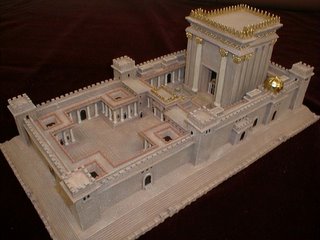Thought of the Week - Toldot 2
B”H
Thought of the Week

Just a quick interesting note I came across in the last week’s torah portion of Toldot.
Regarding the wells Isaac dug
Isaac would dig up a well and it filled up with water all on it’s own, seeing this, the Philistines disputed and claimed it was their well. Isaac then moved and dug a second well elsewhere, this well filled it self up to, while the first dried up, due to Isaacs’ prayer. On this to did the Philistines dispute, only for Isaac to move once again. Here Isaac dug his third and final well that filled itself up and dried the previous one, however on this well the Philistines did not dispute.
These wells alluded to the future.
The first well was called Esek (lit. challenge) for the Philistines challenged Isaac in what was an obvious lie. This alludes to the first Temple built by King Solomon in 2928 (832 b.c.e) and destroyed by the Babylonian king Nebuchadnezzar in 3338 (352 b.c.e) the Temples’ destruction presented the greatest possible challenge to the Jews at the time.
The second well was named Sitnah (lit. obstruction) this alluded to the second Temple built by Ezra in 3408 (352 b.c.e) and destroyed by the Romans in 3828 (68 c.e) G-d caused the Temple to be destroyed because of the causeless hatred. Sitnah can also be interpreted “toward Satan” causeless hatred is the work of Satan who brings people to quarrels for no reason.
However the third and final well named Rehoboth (lit. Wide Spaces) was undisputed alluding to the third Temple to be built in

the messianic age, and this will bring to peace and love. It is written regarding the third Temple (Shnei Luchot Habrit) “G-d will now give us wide open space” meaning G-d will expect us to act on our own in our own space Hence our deeds will bring about the building of the last and final Temple, may it be speedily in our times. Amen.
Remember you might be the one to tip the scale!
© Yermi Kurkus 2005. Thought of the week
Derived from Me’am Loez, Shnei Luchot Habrit, Talmud, and from the teachings of the Rebbe Menachem Mendle Schneerson.

0 Comments:
Post a Comment
<< Home